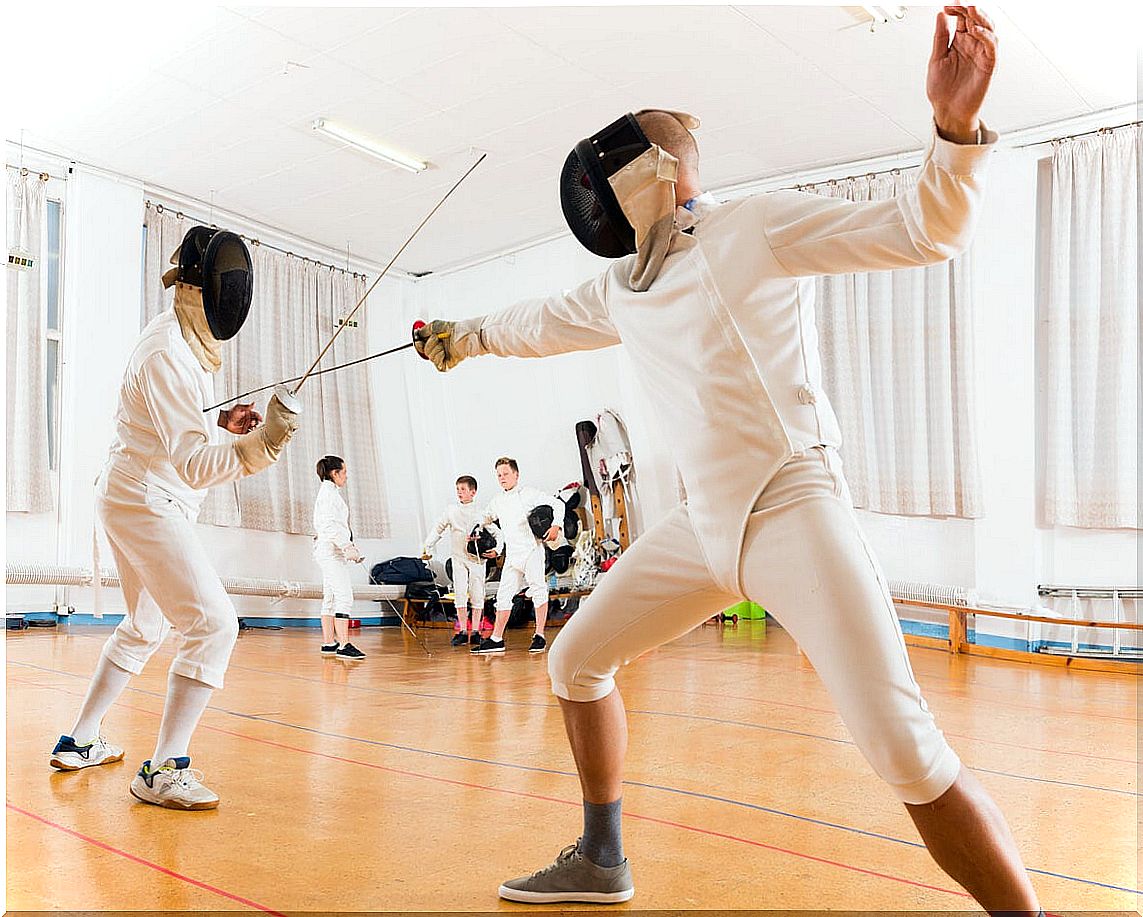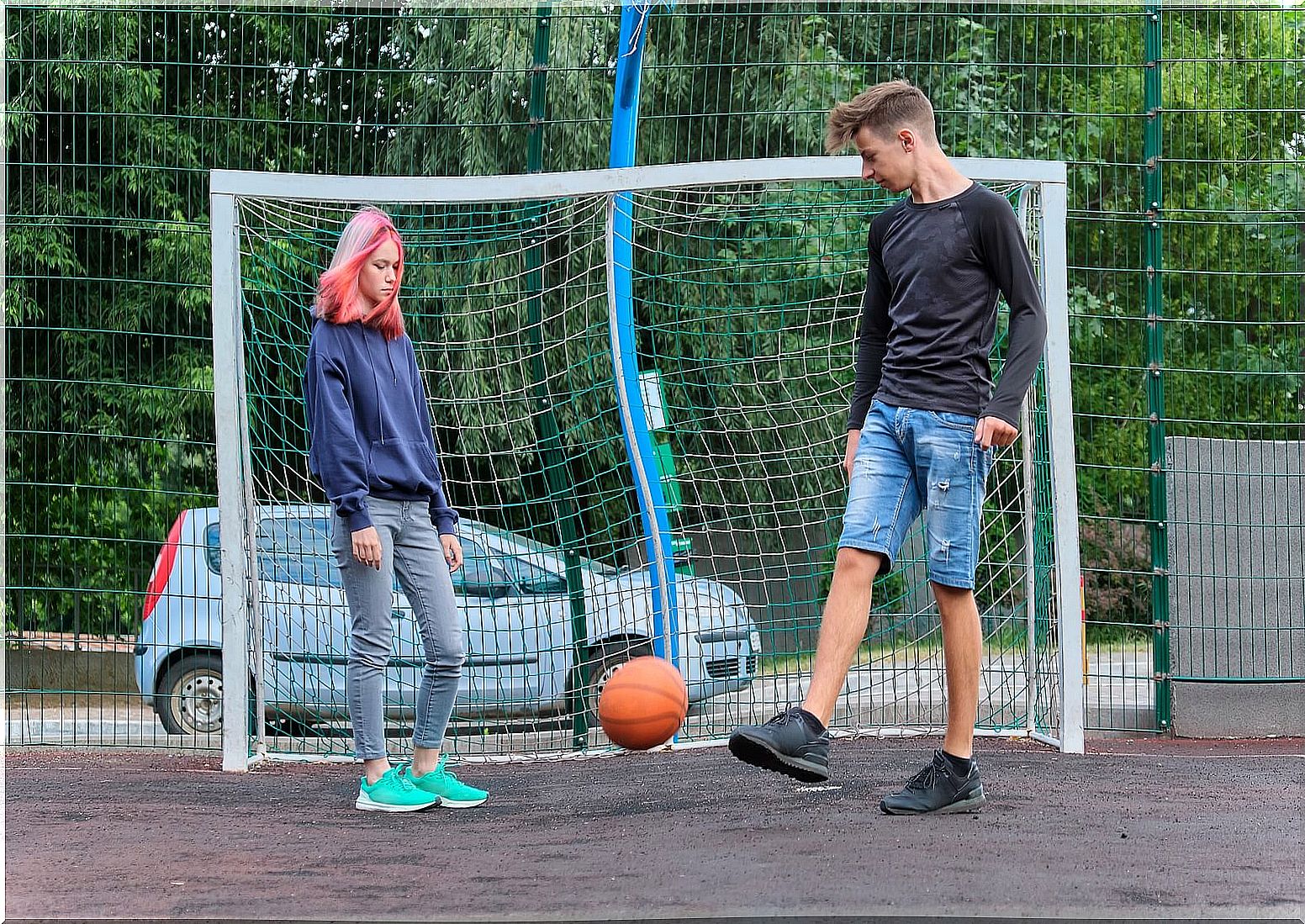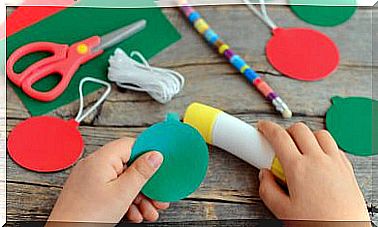How To Make Sport In Adolescence Positive And Rewarding

Playing sports in adolescence may be very beneficial for physical and mental health. However, the characteristics of the stage do not always help sports practice to be sufficiently positive.
Fear of ridicule, lack of confidence, the discovery of new attributes, as well as other issues can cause many adolescents to withdraw from sports.
For teens who are more talented at sports, the pressure to improve, win, or exceed records can be very stressful. In fact, there are many cases of brilliant adolescent athletes who end up leaving the sport completely when they reach 18 or 20 years, if not before.
Benefits of sports in adolescence
Sports in adolescence offers physical, mental and intellectual benefits. Additionally, team sports help teens learn and practice responsibility, dedication, and leadership, among other skills.

We can summarize the benefits of practicing sports in adolescence in the following points, following the indications of the University of Missouri Health Care team :
- Improvement in academic results.
- Learns skills related to teamwork and problem solving.
- Benefits for physical health, not only in terms of fitness and healthy weight, but also in making healthy decisions.
- Increase self-esteem.
- Managing the stress of daily life.
How to make adolescent sports fun and rewarding?
However, for many adolescents it is difficult to achieve the benefits described, either because of the pressure derived from the competition, or because of fear of being judged and ridiculed (and not only by their peer group).
For one thing, the pressure to become the best can affect teens, both mentally and physically. In the case of young people with more difficulties, it is very important not to pressure them and guide them so that the sport becomes a moment of dispersion and improvement. However, we must also pay attention to signs of possible bullying .
In general, to make sport in adolescence fun and rewarding we can take into account the following aspects:
Help teens understand what’s going on
A little stress can help improve an athlete’s performance. However, young people are not always able to manage this stress, especially when they feel pressured by others, especially by coaches and parents.
Acting under pressure can seem like a great learning for life. But it is even more important to learn to identify the signs and know how to take action when stress is excessive.
Many young people will end up abandoning the sport because the stress generated by the different situations will not like them. Others will follow, but the effects of that stress are unlikely to outweigh the benefits gained from sport.
Hence the importance of helping them identify and deal with signs of stress, as well as speaking to them in terms that are motivating for them and that highlight the value of self-improvement above anything else.
Listen and teach them to listen to themselves
Adolescents, when they feel overwhelmed by sport for whatever reason, are not always able to communicate it or do so in terms that require much more than active listening. Therefore, if we observe changes in our children or signs that something is not right, it is necessary to listen to them. Many times you will have to help them a little to talk.

In addition, it is important to help them listen to themselves, to identify the signals that their body sends them. In many cases, too much stress can cause them to lose perspective.
The same goes for physical injuries and muscle strain. A teenager will enjoy sports much less if he ends up in pain or is in constant pain. This is not healthy for your body, but it is not healthy for your mind either.
Let the adolescent choose
Forcing a teenager to play a particular sport if they don’t want to will not help them get the most out of it. Some young people are forced to play certain sports and this bothers them, which affects other aspects of their lives and relationships.
It is much better to let them choose, to try various options. Many times the problem is not the sport itself, but the teammates or the coach that causes the rejection or discomfort of the boys.
In short, supporting your child in sports, encouraging him and listening to him will be of great help to him. But if you push him too hard or downplay his problems or difficulties, you will lose a great opportunity to connect with him and get to know him.










